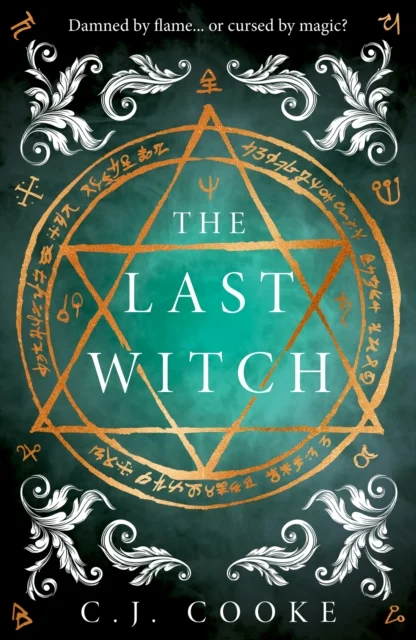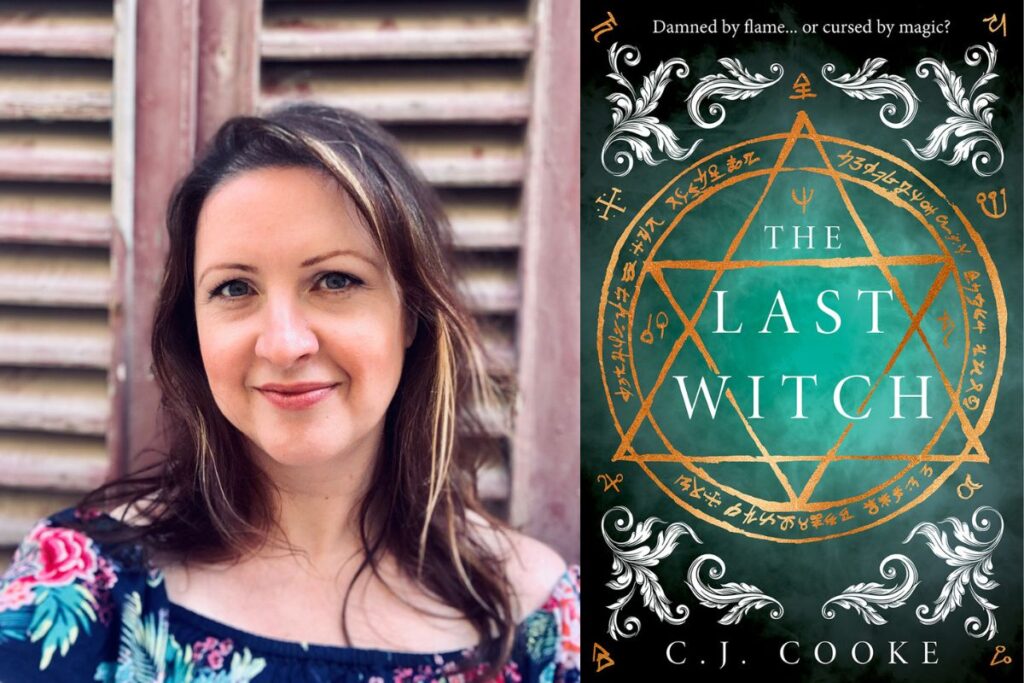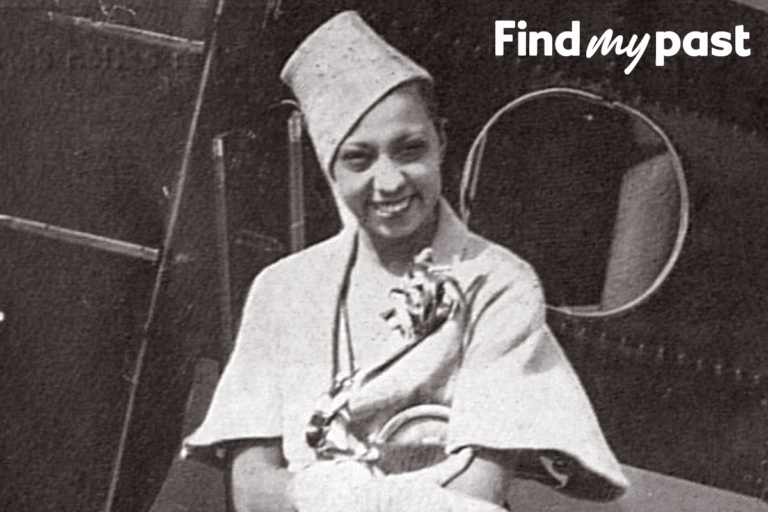In her new haunting gothic thriller, The Last Witch C. J. Cooke tells the true story of Helena Scheuberin, a woman who was tried for witchcraft in Innsbruck in 1485. Helena Scheuberin’s resistance was pivotal, yet her story is barely told. To celebrate the book’s publication, C. J. has shared with us why it’s important to retrieve and retell stories of women’s resistance from the historical record and bring their voices to the forefront.
History, we are told, is written by the victors. But what of those who refused to play by the victors’ rules? What happens to the women who spoke back, who laughed at authority, who stood their ground when silence was safer? Their names slip into the margins, their stories recast as warnings.
Helena Scheuberin was one of them.
In 1485, this Austrian woman stood accused of witchcraft by none other than Heinrich Kramer, the Dominican inquisitor whose humiliation at her hands would inspire one of the most infamous books in European history: Malleus Maleficarum (The Hammer of Witches). Helena refused to play the part of the penitent woman. And though she was acquitted, it was Kramer’s rage – not Helena’s courage – that was immortalised.
When I began writing The Last Witch, I found myself haunted, confused, and enraged by this silence. How do we not already know about this incredible woman? How is she not a household name, commemorated by poems and songs, statues and colleges? Not just the silence of Helena, but of so many women like her, erased from history not because they were unimportant, but because they were inconvenient. Writing, for me, became an act of resistance – a way to speak back across centuries of forgetting.
Erasure is a deliberate act
Helena’s trial should have been remembered as a triumph of justice: a woman who stood up for women against a misogynistic witch hunter and won. Instead, her voice became a footnote to a man’s bitterness. Malleus Maleficarum – published a year later – went on to justify centuries of persecution and misogyny.
The same logic of erasure recurs throughout history. Women’s dissenting voices are absorbed into narratives written against them. Their rage becomes “madness,” their defiance “sin,” their intelligence “sorcery.” It is not that history forgets them by accident – it forgets them because it must, to preserve the illusion of male authority.
Story as survival
That is why narrative matters. Fiction – when it dares to reimagine, reclaim, and resurrect – becomes a form of counter-history. In The Last Witch, I sought to give a voice to those who could not tell their stories in their own time. It is not a simple act of empathy; it is a political one. When we tell the story of a silenced woman, we refuse the structures that kept her voiceless.
Narrative, then, is not just art. It is survival. It allows the dead to speak, and demands that we listen differently.
When I think of Helena Scheuberin now, I think not of her trial transcript, but of her laughter. I imagine the audacity it took to face an inquisitor who would later twist her defiance into a handbook of persecution. That laughter, which history tried to extinguish, is the note that lingers.
Remembering in thread and word
In Scotland, where I live, acts of remembrance are also being rewritten. The Witches of Scotland campaign – which successfully lobbied for an official apology and continues to advocate for a national memorial – has recently registered a tartan as a living tribute to those persecuted under the Witchcraft Act. Its threads encode centuries of injustice: black and grey for ashes, red for blood, pink for legal ribbons.
I mention the tartan because it represents what I believe narrative must do – transform mourning into meaning. Like storytelling, it is a weaving-together of fragments, a reclaiming of what was torn apart. Each thread, like each retold life, insists: we were here.
But memorials, like stories, must resist the temptation to romanticise. The women accused of witchcraft were not mythical crones; they were neighbours, midwives, healers, mothers. They were women whose very existence unsettled a world that feared their autonomy. The tartan remembers them not as monsters or martyrs, but as people.
Reclaiming the silence
Helena Scheuberin’s silence is instructive. It is not the silence of guilt or submission, but the silence history imposed upon her – the gap left when the record favours power over truth. To write into that silence is to commit an act of reclamation.
In The Last Witch, I wanted to explore what it means to be remembered incorrectly – or not at all. The novel imagines that memory itself is an act of witchcraft: a forbidden power to see what others choose not to see. In that sense, writing about witches is writing about history itself – about who gets to tell it, and who is made to disappear within it.
We cannot give Helena Scheuberin her voice back. But we can speak in the spaces where she was silenced. We can tell her story differently.
The witches of the past were condemned for knowledge, for defiance, for refusal. To write them now – to name them, to remember them – is to continue their resistance.

If you’re interested in researching women who have been ignored by the historical record, and bring their stories to life yourself, browse the wealth of resources available on Findmypast – sponsor of the 2026 Women’s Prize for Non-Fiction.








